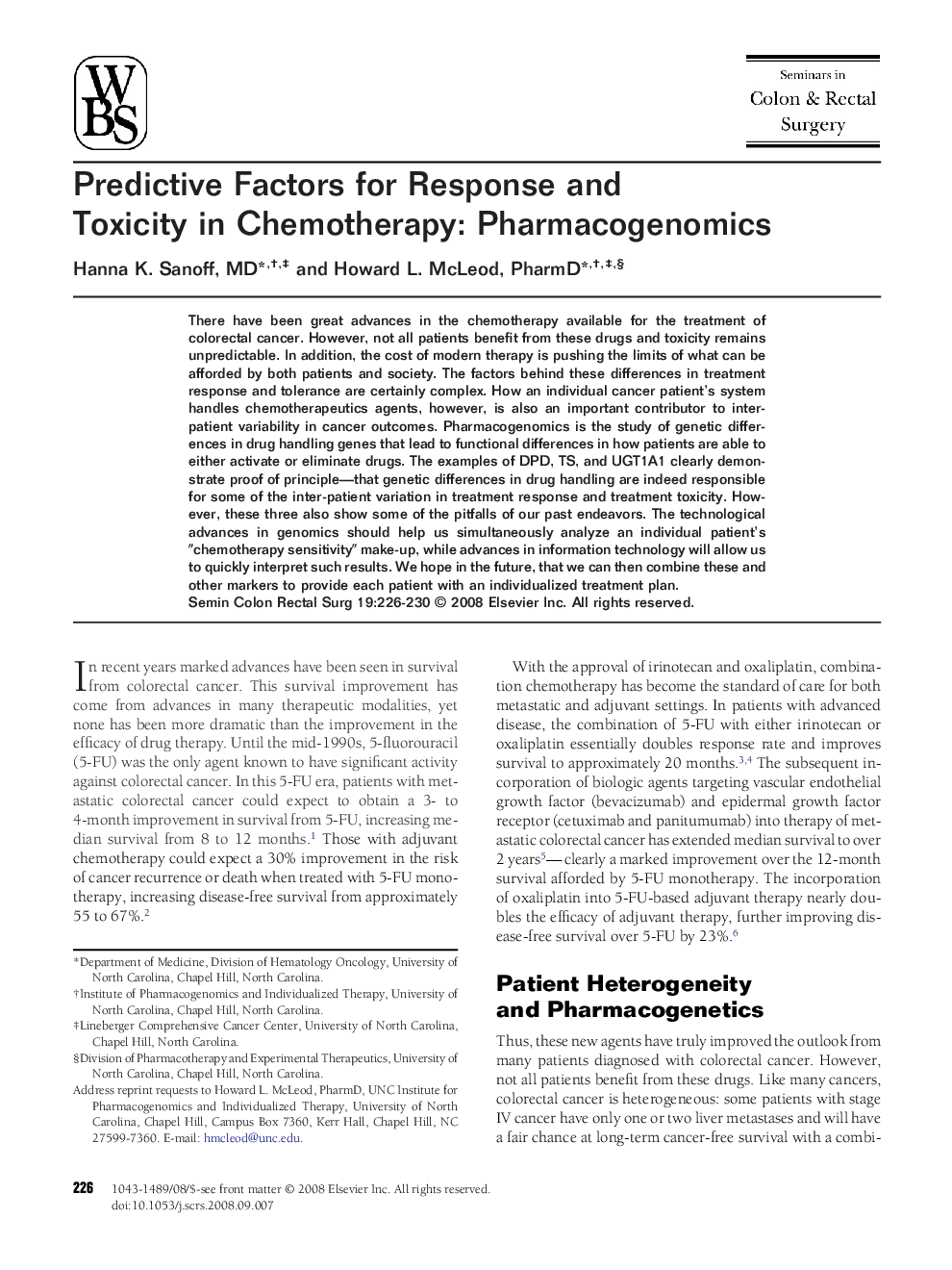| Article ID | Journal | Published Year | Pages | File Type |
|---|---|---|---|---|
| 3319588 | Seminars in Colon and Rectal Surgery | 2008 | 5 Pages |
Abstract
There have been great advances in the chemotherapy available for the treatment of colorectal cancer. However, not all patients benefit from these drugs and toxicity remains unpredictable. In addition, the cost of modern therapy is pushing the limits of what can be afforded by both patients and society. The factors behind these differences in treatment response and tolerance are certainly complex. How an individual cancer patient's system handles chemotherapeutics agents, however, is also an important contributor to inter-patient variability in cancer outcomes. Pharmacogenomics is the study of genetic differences in drug handling genes that lead to functional differences in how patients are able to either activate or eliminate drugs. The examples of DPD, TS, and UGT1A1 clearly demonstrate proof of principle-that genetic differences in drug handling are indeed responsible for some of the inter-patient variation in treatment response and treatment toxicity. However, these three also show some of the pitfalls of our past endeavors. The technological advances in genomics should help us simultaneously analyze an individual patient's “chemotherapy sensitivity” make-up, while advances in information technology will allow us to quickly interpret such results. We hope in the future, that we can then combine these and other markers to provide each patient with an individualized treatment plan.
Related Topics
Health Sciences
Medicine and Dentistry
Gastroenterology
Authors
Hanna K. MD, Howard L. PharmD,
